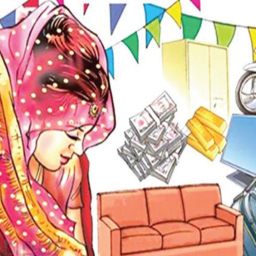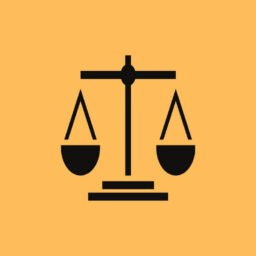Introduction
A prisoner is someone who has been convicted of a crime and is serving time in prison. The term is often used to refer to individuals who are in jail. A person whose right to liberty is curtailed due to the confinement in a closed or restrictive environment. India’s prison system is overcrowded, underpaid, and plagued by poor health conditions. Healthcare is always considered as an important human right concern whether it is about prisoners or non-prisoners. It has been examined that prisoners face a lot of illness as their health conditions are often neglected when compared to other members of society. Prisoners are punished not only because of their crimes but also punished by the sufferings from illness due to poor health infrastructure. Another aspect of poor health conditions behind bars is mental illness due to boredom and anxieties. This mental illness often resulted in suicide, drug abuse, same-gender sex, alcoholism, etc. Violence inside the jail between gangs also contributes a lot to physical illness. Transmission of diseases is quite easy due to the overcrowding in India’s prison cells.
Rights of Prisoners
Every person has the right to basic necessary human rights even if the act committed by he/she is inhuman. Ensuring basic rights does not mean giving full liberty and luxuries. These rights should be restrictive in nature.
- Parmanand Katara Vs Union of India, 1989 [1]
In this landmark judgment, the Supreme Court held that the right to life is of utmost importance and it is guaranteed to each and every individual whether has been proven guilty or not. In addition to that, every person has the right to get medical assistance under Article 21 [2] and medical practitioners are obliged to look after each and every patient irrespective of their criminal nature.
- Paschim Bengal Khet Mazdoor Samiti Vs State of West Bengal, 1996 [3]
In this case, the court held that government hospitals cannot deny treatment on grounds of insufficient beds otherwise they would be held liable under Article 21 of the Indian Constitution. Moreover, government hospitals are required to provide timely medical treatment to safeguard human life.
- Rasikbhai Ramsing Rana Vs State of Gujarat, 1999[4]
In this case, the court held that every person should be availed of medical treatment as it is a basic human right. The court also held that there should be proper mental and physical healthcare of prisoners suffering from any disease by jail authorities.
- TN Mathur Vs State of Uttar Pradesh, 1993[5]
The Supreme Court held that detention of prisoners in lock-up must be provided with at least 40 square per feet person which involves basic facilities of furniture and potable water. Each detained person should be provided with their individual cot.
- Sheela Barse Vs State of Maharashtra, 1983[6]
In this case, the court looks after the issue of ill-treatment with prisoners and ensures the protection of women prisoners in India. In addition to that, Chapter VIII Section 37 to Section 39 of The Prisons Act, 1894[7] deals with the health conditions of the prisoners. It ensures that Jailer or Officer in Charge should be informed about the medical conditions of the prisoners by a medical practitioner without any delays. It also ensures that each and every prisoner should be assisted by a medical practitioner. Supreme Court of India also ensures the protection of prisoners against any cruel or inhuman behaviour by prohibiting the use of chains, irons, handcuffs, etc. for beating the prisoners for any punishment. Some of the equipment are permissible but under certain restrictive circumstances.
Important Committees on Prison Reform
- Justice Mulla Committee Report, 1980[8]
According to the report, there should be a National Policy for prison and law-making rules of prison should be transferred to the Concurrent List from the State List. It also states that young offenders should not be placed with adult offenders in the prison. In this report, there was also a provision for children below the age of 18 years that there should be separate rehabilitation institutions for them which also provides facilities like education, training, etc.
- Justice Iyer Committee on Women Prison report, 1987[9]
According to the report, there should be a separate prison for women, and women staff should be appointed for them. It also ensures that there should be proper provisions to restore her dignity although the act committed by her is against law and society and there should be free legal aid to be provided by the government to all women offenders. A high-powered committee was set up by the Government after both of the above-mentioned committees under the chairmanship of the Director-General, Bureau of Police Research and Development. This committee used their reports with some extra recommendations although some of their recommendations were impractical to execute.
Covid Impact on Prisoners
Despite being the existence of provisions on prisoners’ health, the medical requirement of prisoners is neglected. Overcrowding prisoners continued to be the most serious problem during the pandemic as overcrowding resulted in the easy transmission of Covid among inmates as it is a highly contagious disease. Due to this rising concern, A Suo moto cognizance was taken by the Supreme Court of three judges bench named Contagion of COVID-19 Virus in Prisons, 2021. The Supreme Court ordered the High-Powered Committee (HPC) to eliminate delays and grant interim bail and paroles for an appropriate period of time. It ultimately reduces the overcrowding of jails and controls the spread of disease among inmates. These steps are taken keeping in mind the right to life and health of prisoners. The court also directed the State governments and Union Territories to launch vaccination drives inside the prisons.
Conclusion
We have seen how overcrowding in prison is one of the most important issues behind poor health conditions in prison. So, the government is required to take more effective steps to resolve this issue either by implementing more laws or by increasing the number of prison cells in India. Although a prisoner is imprisoned for his inhuman act or behaviour that is against society yet he is a human and it’s our duty to protect his basic human rights. Emphasis should be laid upon providing education and training to the inmates rather than ill-treatment.
Author(s) Name: Aastha Bhageria (Vivekananda Institute of Professional Studies, Delhi)
References:
[1] 1989 AIR 2039
[2] The Constitution Of India, Article 21
[3] 1996 SCC (4) 37
[4] 1999 CriLJ 1975, (1999) 1 GLr 176
[5] 1993 1 SCC 722
[6] 1983 AIR 378, 1983 SCR (2) 337
[7] The Prisoners Act, 1984 (Chapter VIII Section 37 to Section 39) <https://legislative.gov.in/sites/default/files/A1894-9.pdf>
[8] Prison Reforms <https://www.mha.gov.in/MHA1/PrisonReforms/report.html>
[9] Prison Reforms <https://www.mha.gov.in/MHA1/PrisonReforms/NewPDF/PrisonAdmin17072009.pdf>















